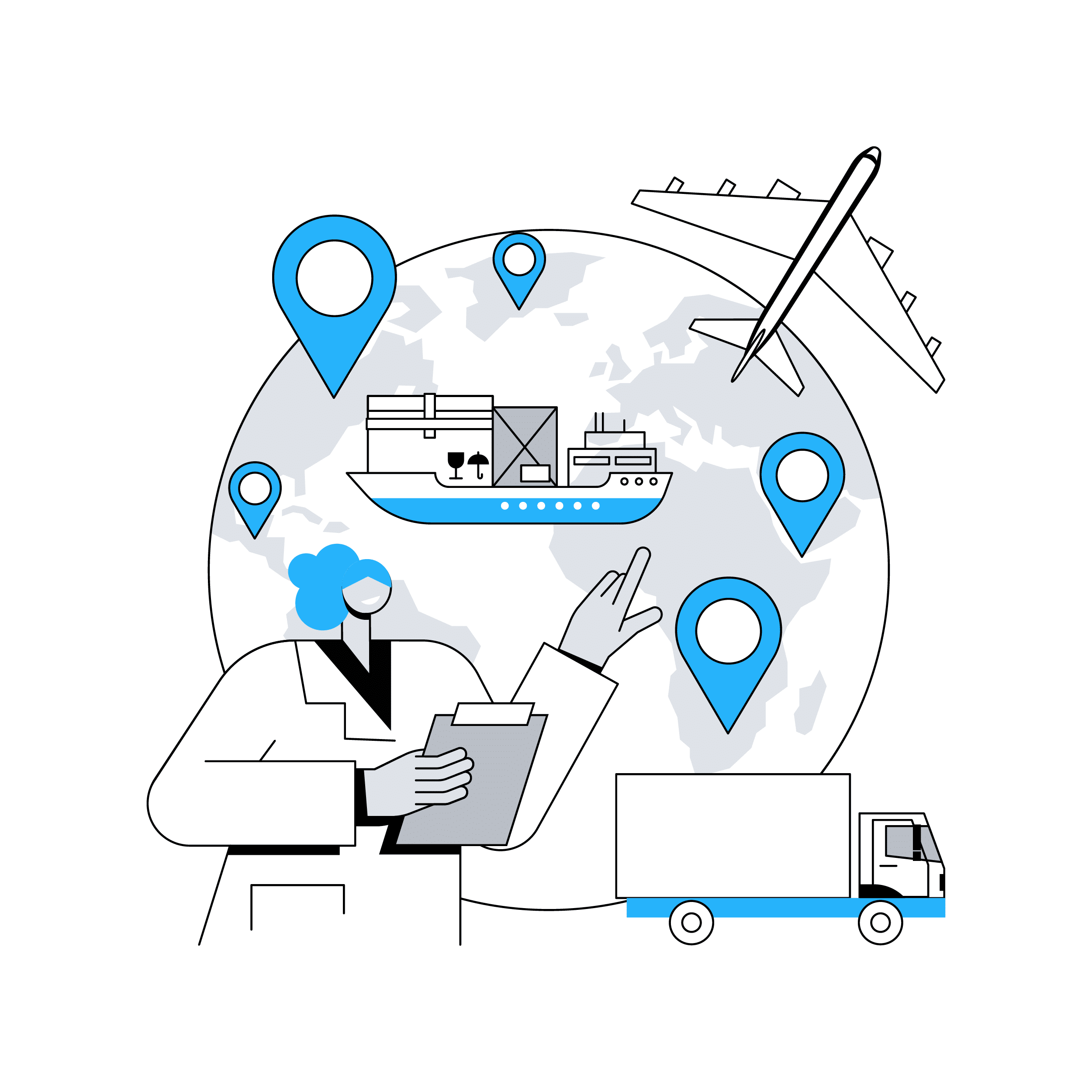Forwarders face a dual challenge in today’s dynamic business landscape: meeting customer demand and ensuring air freight compliance. When exporters choose a freight forwarder, they seek a partner with a spotless record, free from any compliance lapses.
In today’s globalized economy, air cargo serves as a vital artery for swift and efficient goods transportation across the world. However, this industry operates under a web of stringent regulations and compliance requirements to ensure safety, security, and adherence to international standards. In this blog post, we will explore how freight forwarders can actively participate in ensuring air cargo compliance while optimizing their operations for success and earning the invaluable trust of their customers.
The 5 Tips to stay compliant for freight forwarders
1. Understand the Regulatory Landscape
To embark on the air cargo compliance journey, freight forwarders must comprehensively understand the regulatory landscape. Familiarize yourself with key regulations and guidelines set forth by international bodies such as the International Civil Aviation Organization (ICAO) and the International Air Transport Association (IATA). Stay updated with the latest developments, amendments, and industry best practices to ensure compliance.
2. Appoint a Compliance Officer
Designating a dedicated compliance officer within your freight forwarding company can significantly streamline and strengthen your compliance efforts. This individual will oversee compliance initiatives, stay abreast of regulatory changes, and implement necessary procedures. Their role will involve creating a compliance framework, conducting regular audits, and ensuring adherence to relevant regulations.
3. Develop Comprehensive Standard Operating Procedures (SOPs)
Developing and implementing robust standard operating procedures is essential for maintaining compliance in freight forwarding operations. SOPs should cover various aspects such as screening, handling, packaging, documentation, and reporting. Ensure that your SOPs align with the regulatory requirements, are up to date, and are effectively communicated to all relevant personnel.
4. Enhance Security Measures
Security is a critical component of air cargo compliance. Freight forwarders should focus on enhancing security measures to mitigate risks and prevent unauthorized access to cargo. Implement stringent access controls, surveillance systems, and employee training programs. Engage in risk assessments, collaborate with industry stakeholders, and stay informed about emerging security technologies and practices.
5. Invest in Advanced Screening Technologies
Advanced screening technologies can significantly enhance your ability to comply with air cargo security requirements. Consider investing in state-of-the-art screening equipment such as X-ray machines, explosive trace detectors, and automated explosives detection systems. These technologies enable thorough inspections while minimizing disruption to cargo flow.

Leverage compliance management technology
1. Automation of Documentation and Processes
Technology has revolutionized the way freight forwarders handle documentation and processes. Manual paperwork and time-consuming administrative tasks can be replaced with automated systems that reduce errors and increase efficiency. Advanced software solutions enable freight forwarders to automate the creation, submission, and processing of essential documents such as bills of lading, customs forms, and certificates of origin. These systems also facilitate seamless communication and data exchange between different parties involved in the supply chain, including shippers, carriers, and customs authorities.
2. Enhanced Visibility and Tracking
Freight forwarders can improve visibility and tracking capabilities throughout the shipment lifecycle. Real-time tracking systems and GPS technologies allow forwarders to monitor shipments’ location, status, and condition, ensuring timely deliveries and minimizing the risk of theft or loss. This visibility also enables forwarders to proactively address any issues, such as delays, rerouting, or changes in customs regulations, thereby enhancing compliance with customer requirements and regulatory obligations.
3. Compliance Management Systems
Freight forwarders deal with many compliance requirements, including customs regulations, trade sanctions, security protocols, and hazardous materials regulations, among others. With the right compliance management system, freight forwarders can now centralize and automate the tracking and management of these obligations. These systems can perform automated checks against various compliance databases, such as global sanctions lists and import & export controls, flag any potential compliance issues, and ensure adherence to regulations.
Moreover, they can generate audit trails and documentation to demonstrate compliance, essential for regulatory reporting and mitigating potential legal risks.
4. Data Analytics and Risk Management
By analyzing historical shipping data and industry trends, forwarders can identify patterns, optimize routing, and make informed decisions to enhance efficiency and compliance.
Furthermore, advanced risk management solutions integrated with technology platforms enable forwarders to assess and mitigate potential risks associated with shipments, such as security threats, regulatory compliance, or operational disruptions. This proactive approach helps freight forwarders maintain a secure and compliant supply chain.
5. Collaboration and Communication
Technology enables seamless collaboration and communication between various stakeholders in the freight forwarding process. Cloud-based platforms and online portals allow forwarders to share information, documentation, and updates in real time with shippers, customs authorities, carriers, and other relevant parties. This ensures all stakeholders are on the same page, minimizing errors, delays, and compliance issues arising from miscommunication. Additionally, technology facilitates electronic communication with customs authorities, streamlining the clearance process and reducing the time and effort required for compliance-related interactions.
Conclusion
Nowadays, technology has become an indispensable asset for freight forwarders in ensuring compliance with the complex and ever-changing regulations governing international trade. Automation of documentation, enhanced visibility, compliance management systems, data analytics, and improved collaboration all contribute to streamlining operations and reducing compliance risks. By embracing and leveraging technology, freight forwarders can enhance their efficiency, reduce costs, and maintain compliance, ultimately providing reliable and compliant logistics solutions to their customers in the global marketplace.
Are you a freight forwarder actively looking for a compliance management system? Feel free to reach out to us.









